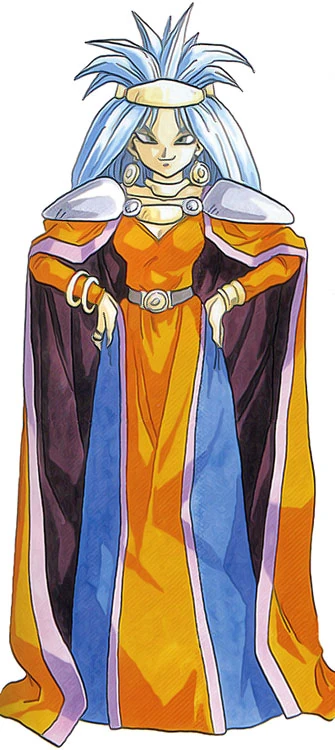At least those ideas seem to be a thing from the past, that can fade in the next four years. The time where LGBT rights experienced some many stumbles such as the the Reagan administration with the AIDS epidemic, the ascension on the national spotlight of the Westboro Baptist Church, Don't Ask Don't Tell, the killing of Matthew Shepard at the end of the decade; the novels Armistead Maupin novels, the Super Nintendo and riot grrrl just to name a few cultural and social events that gave a shape to the two decades.
 |
| The Dining Room |
The game itself offers a very minimalist approach towards the gameplay; it is set on June the 7th of 1995, in Oregon. Kaitlin Greenbriar returns to the United State after traveling around Europe after graduation. She also arrived to a new residence in which her father inherited from his late uncle Oscar.
As the moment Kait arrives in the new house she saw a note left by her sister asking her to not search for clues about what happened to everyone. Curiosity starts as the main motivator to start exploring around the house and it's what it sets the events of the game in motion. The game itself is on the same vein as
The Chinese Room (homepage) specifically their game
Dear Esther (Dear Esther - Wikipedia). That set the goals as well the aesthetics of exploring an enviroment through the use of memories and give the player a minimal approach to submerge them in the game.
 |
| Imagery of the 1990's |
The game is filled with imagery set on the 1990's, there are the faux rock and grunge bands, the fake SNES games but also books that were common to see on those days; as well names of celebrities and television shows. There are some minor easter eggs, such as the one in the photo that it could be a developer mistake but on the flyer that is below the book,
KSNC (Wiki-commons) is a radio station in Kansas that back in 1995 didn't had reach to Oregon where the game is located.
The exploration of the house brings to a window of the past, at least for the people who grew up in the 1990's. It's almost as residences looked like, not in terms of architectures but the items that could be found that made references to that era. The use of cassetes, VHS tapes as well the mention of the SNES bring some sort of nostalgia about certain cultural aspect of the Americana Culture but then it brings an important underlying on why is important to keep pushing to end discrimination on the work place but also end LGBT-phobia; the game talks between letters about how the family comes to cope that their youngest daughter Samantha is a lesbian.
 |
| Lonnie |
The story of Gone Home deals with abandonment and coming in terms with identy, but also it gives an insight through the mechanics about
Don't Ask Don't Tell (DADT- Wiki) separated loved ones who served in the military to be open in public; also, another important part of the story goes on how parental attitudes, friends can affect the life of an individual who feels rejection.
Maybe, the protagonist of the story is Kait's sister Samantha, who through a series of letters as well hidden messages around the house and clues about her academic performance can give the player a sense of solitude and alienation she was experiencing, but also the idea can still be experienced today. Within family niches, they can provide a key to a healthy functional adult (Husted, 2012) and prevent suicide when they are on a younger stage in life.
--------------------------------------------------------------------------------------------------------------------------
Spoilers
--------------------------------------------------------------------------------------------------------------------------
As it was saw in the game, the ultimate fate of Sam and the girl she fall in love with, Lonnie; showed that both didn't find acceptance and they found comfort within each other; but, to think that two young people under the age of 20 could make it on their own 20 years ago as if is in today, is still difficult.
Lonnie or Yolanda DeSoto, as a young latina lesbian who is also involved within the military in one of the most turbulent periods of the contemporary history could had faced a destiny worse than Samantha herself; she could had been the subject of rape and other forms of physically violence if she dared to talk openly about her identity and sexual orientation.
Towards Sam family life, we could see that based on her parents marital issues she felt abandoned but at the moment they knew she was a lesbian, they simply dind't cared and thought she could be just experimenting but based on Sam's diary's, she knew it wasn't a "phase" as the feelings for Lonnie were real.
As it was saw on the end of the game, there wasn't a happy ending, it was a family who got thorn out by not knowing how to communicate properly and to find acceptance in their differences. Albeit, the clues about who Sam identity was rely on the clues of her musical tastes that are spread around the house and how Riot grrrl became a central queer ideology that was situated with a subtle aspect that maybe Sam's and Kaith parents didn't noticed.
--------------------------------------------------------------------------------------------------------------------------
Spoilers
--------------------------------------------------------------------------------------------------------------------------
 |
| Heavens to Betsy |
Heavens to Betsy (Wikipedia Commons) play an important role towards the game narrative, as the queercore band songs are played constantly on the game as the story progress it shows the struggle that being alienated feels but also on how the punk feminist music could had affected culturary someone who didn't had a voice.
Is really interesting to see how those subtle forms of expression where common in a day where the Internet and the forums where on their "baby days" where music and zines were on vogue to transmit ideas and political information.
It could be even considered a form of revolution to spread a message before mass communication took over and it gave voices to the groups and tribes that didn't had them. Albeit now, even with the use of internet and social media as tools, it is important to know that is central to keep the fight for equality and understanding open, because discrimination is still rampant and there is no way to ensure that our rights as citizens will be respected.
References:
- Homepage: The Chinese Room - http://www.thechineseroom.co.uk/
- The Chinese Room - Dear Esther: https://en.wikipedia.org/wiki/Dear_Esther
- KSNC - https://en.wikipedia.org/wiki/KSNC
- Don't Ask Don't Tell - Wiki, Commons: https://en.wikipedia.org/wiki/Don%27t_ask,_don%27t_tell
- NPR.org, Husted, Kris - Family Acceptance, in Preventing Gay Youth From Considering Suicide. http://www.npr.org/sections/health-shots/2012/02/13/146831239/family-acceptance-key-in-preventing-gay-youths-from-considering-suicide
- Heavens to Betsy - Wikipedia: https://en.wikipedia.org/wiki/Heavens_to_Betsy




















































